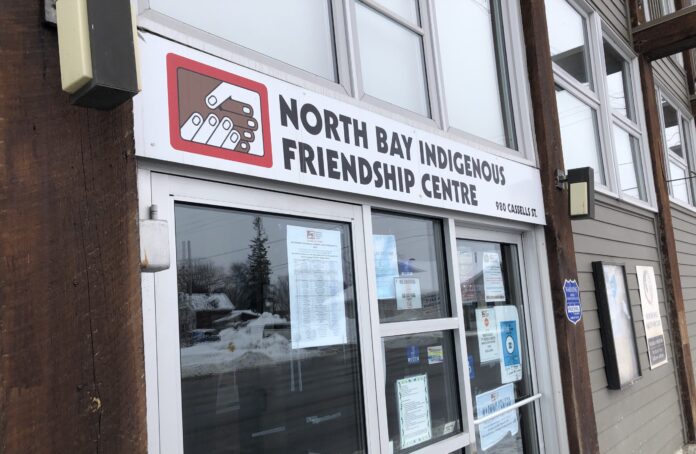The North Bay Indigenous Friendship Centre (NBIFC) is calling for improved communication and transparency with municipal organizations in order to tackle the ongoing homeless crisis.
A study on homelessness done by the District of Nipissing Social Services Administration Board (DNSSAB) found that 42 percent of homeless people in North Bay identify as Indigenous despite making up just 14 percent of the overall population.
Kathy Fortin, executive director at the NBIFC, says Indigenous people will often come to the city for better opportunities before becoming homeless.
“A lot of them come to the city for education then their family follows,” she explained. “They’ll come here to get jobs or maybe continue their education and it ends up that there’s no housing because it’s expensive to live within the North Bay area.”
The NBIFC has published a paper outlining what needs to be done in order to end what Fortin calls a “homeless crisis”.
Among the issues pointed out in the paper is how DNSSAB does not disclose how Indigenous-specific funding gets allocated to groups like the NBIFC.
“It’s not distributed proportionally, which the money is supposed to,” said Fortin. “It’s just something we’ve asked over time and never really got an answer.”
The NBIFC is calling on the municipality, DNSSAB and other community partners to tackle the homeless crisis together.
“If we work collaboratively together, we’d come up with a solution. But if they don’t work with the people who have the most population (among homeless), it’s kind of hard to solve the problem,” said Fortin. “Have the Indigenous organizations be inclusive in everything because the statistics show that Indigenous people are almost half the homeless population.”
The NBIFC is in the process of building a 30-room temporary housing unit near its facility on Cassells Street that will have culturally specific support to help Indigenous people.
Fortin says they play to break ground on the building this spring in order for it to be ready in 2022; however, she is still waiting on funding applications to help pay for the project.
“We’re looking for more funding not only to build the building but also for staff,” she noted.
With the COVID-19 pandemic continuing, Fortin hopes the NBIFC’s paper will lead to more tangible solutions to address homelessness.
“There are always good ideas but we want to put things in action,” she said. “With COVID-19, it’s causing the crisis to get out of hand.”






